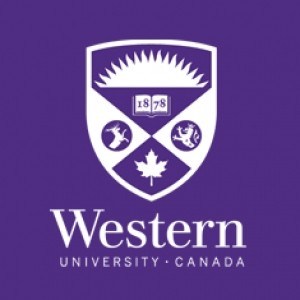Photos of university / #westernuniversity
The Bachelor's degree in Linguistics at Western University offers a comprehensive and in-depth exploration of language structure, function, and development. This programme is designed for students who are passionate about understanding the complexities of human language and its role in society, cognition, and communication. Throughout the course of study, students will engage with various aspects of linguistics, including phonetics, phonology, morphology, syntax, semantics, and pragmatics, gaining a solid foundation in both theoretical and applied linguistics.
The programme emphasizes the scientific study of language, encouraging students to analyze linguistic data, develop research skills, and apply theoretical knowledge to real-world language issues. Students will have opportunities to study diverse language families and dialects, explore language acquisition and change, and examine the relationship between language, culture, and power. In addition, the programme covers interdisciplinary topics such as psycholinguistics, sociolinguistics, computational linguistics, and language technology, preparing graduates for careers in academia, language technology industries, education, translation, and more.
Western University’s linguistics programme is distinguished by its experienced faculty, modern research facilities, and collaborative learning environment. Students are encouraged to participate in internships, fieldwork, and research projects to gain practical experience and develop professional skills. The curriculum combines theoretical coursework with practical applications, ensuring students are well-equipped to analyze and solve linguistic challenges.
Graduates of this programme will be equipped with a versatile skill set including analytical thinking, research methodology, intercultural competence, and effective communication. Many students go on to pursue graduate studies or enter careers related to linguistics, language teaching, speech therapy, computational linguistics, or language policy. The programme’s strong emphasis on both scientific investigation and practical application makes it an ideal choice for individuals interested in exploring the intricacies of human language and contributing to advancements in linguistic knowledge and technology.
- Introduction to Linguistics
- Introduction to Linguistics
- Linguistics: Applications and Extensions
- Topics in Language and Culture
- Anthropology of Reading and Writing
- Phonological Analysis
- Introduction to Syntax and Semantics
- Discourse Analysis and Linguistic Pragmatics
- Greek and Latin Elements in English
- General Linguistics in French: Sound Patterns
- General Linguistics in French: from Sound to Meaning
- Research on Language in Canada
- Introductory General Linguistics
- Introduction to Logic
- Introduction to Philosophy of Language
- Psychology of Language
- Comparative Grammar of English and Spanish
- Field Techniques in Linguistics
- Historical Linguistics
- History of the English Language
- Old English Language and Literature
- Syntax in French
- Phonetics and Phonology in French
- History of the French Language
- Language Impairments
- Supervised Reading/Research in Linguistics
- Special Topics in Logical Theory
- Theories of Meaning
- Philosophy and Linguistics
- Bilingualism
- Language Development
- Research in Psycholinguistics
- The Structure of Spanish
- The Spanish Sentence
- The Sounds of Spanish
- Introduction to Speech and Language Disorders
- Old French Language
- Supervised Senior Reading Course
- Supervised Senior Reading Course
- Morphology in French
- Sociolinguistics in French
- Advanced Phonological Analysis
- Advanced Syntactic Analysis
- Advanced Supervised Reading/Research in Linguistics
- Advanced Supervised Reading/Research in Linguistics
- Problems in Philosophy of Language
- Spanish in Contact
Requirements
- Certificate of Complete Secondary General Education - Attestat o Srednem (Polnom) Obshchem Obrazovanii
- Applicants must disclose post-secondary attendance on the application form and submit official transcripts to the Undergraduate Admissions Office.
- Proof of English language proficiency.The minimum score required on the TOEFL is 550 on the paperbased with a 5 on the TWE, and 83 on the internet-based tests with no score below 20.IELTS Academic is required with a minimum overall band score of 6.5 with no part less than 6.0.
- Application Fee $165.00 (CAD)
Scholarships
- Entrance Scholarships
- Faculty of Arts and Humanities Entrance Scholarship of Excellence
- Dean’s Entrance Scholarship (Faculty of Arts and Humanities)
The Linguistics program at Western University offers students a comprehensive understanding of the scientific study of language. This program explores the structure, function, and variation of human language across different contexts and communities. Students gain knowledge in core areas such as phonetics, phonology, morphology, syntax, semantics, and pragmatics, allowing them to analyze how languages are constructed and how they function in communication.
Western University's linguistics curriculum emphasizes both theoretical foundations and practical applications. Students have opportunities to engage in experimental research, phonetic analysis, and computational linguistics, preparing them for careers in academia, language technology, translation, and speech-language pathology. The program also covers sociolinguistics, language acquisition, and psycholinguistics, providing insights into how language interacts with social factors and cognitive processes.
In addition to coursework, students can participate in research projects, internships, and fieldwork, which enhance practical skills and real-world understanding. The university supports interdisciplinary approaches, allowing students to combine linguistics with psychology, computer science, anthropology, or education. Graduates from Western University's linguistics program are well-equipped with analytical skills, language expertise, and research experience, making them competitive in diverse professional fields.
The program is designed for students interested in understanding the complexities of human language and its role in society. It aims to foster critical thinking, scientific inquiry, and effective communication. Western University provides access to modern laboratories, language resources, and experienced faculty members who are experts in their respective areas of linguistics. The program typically takes four years to complete and may include options for specialization or concentration areas depending on the student's interests.
Overall, the linguistics program at Western University offers an academically rigorous, multidisciplinary education that prepares students for advanced study or professional careers related to language and communication.


